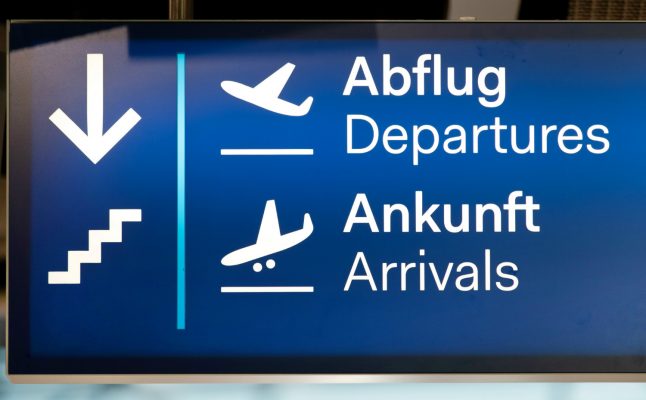Across Europe, borders are beginning to open as restrictions put in place to stem the spread of coronavirus are relaxed. It means people are looking ahead to their holidays and wondering where they can travel.
At the moment, the warning against tourist travel abroad from Germany remains in place. However, from June 15th the travel warning will be lifted for EU countries and associated states as well as the UK, and replaced with individual travel advice. It will remain in place for countries outside the EU.
Here's the latest on quarantine orders in Germany. Keep an eye on the German government website for the most up-to-date advice on travel and coronavirus restrictions.
READ ALSO: Germany to lift travel warning for EU countries from mid-June
Do people entering Germany have to go into quarantine?
In April Germany had ordered all arriving travellers (excluding those travelling on essential business) to carry out a two-week quarantine in a bid to slow down the spread of coronavirus. The rule has gradually been lifted as the situation improves.
Now, under the Protection against Infection Act (Infektionsschutzgesetz), anyone who enters Germany from a so-called third country must complete a mandatory two-week quarantine.
Third countries are outside the European Union (EU). Exceptions will apply if German authorities decide that the infection rate of a country is low. The names of these countries will be published on the Robert Koch Institute website, the government says.
There is no quarantine obligation for people travelling to Germany from EU states, as well as the states of Iceland, Liechtenstein, Norway, Switzerland and the UK.
However, if an EU country reports an increase in coronavirus infections (over the last seven days the number of new infections in the respective country amounts to more than 50 per 100,000 inhabitants), individual states in Germany can order people returning to go into 14-day self isolation.
Is that the case anywhere in the EU?
Yes. In the past seven days (as of June 9th) Sweden has registered more than 50 cases per 100,000 citizens. It means some German states, including Lower Saxony, Mecklenburg-Western Pomerania and Schleswig-Holstein say anyone returning from Sweden must complete a 14-day quarantine.
According to the Robert Koch Institute, Sweden is currently the only country in the EU where limit for new infections has been exceeded.
Check the website of the specific German federal state where you live for more details, as rules may vary from state to state.
READ ALSO: When can Americans travel to Germany?
How does mandatory quarantine work?
If you enter Germany by land, sea or air from a third country, or an affected country like Sweden, you are required to go directly to your own home or other suitable accommodation, immediately after arrival and remain there for a period of 14 days.
You also have to contact the local health authority and inform them of your entry into the country. Officials there will supervise compliance with this order.
This information leaflet in English by the RKI has more information on how to self-isolate at home.
READ ALSO: These are the countries where Germany is planning to lift the travel warning
Some people are excluded from having to quarantine, such as delivery drivers or other essential workers (although the rules are different from state to state). If this affects you, you should discuss with your employer and local officials.
However, if anyone displays symptoms of Covid-19 they should isolate and let the local health authority know about their symptoms.
What about other countries?
Keep in mind that countries across the world may have varying quarantine orders in place, not to mention border restrictions or lockdown measures to contain the virus.
When or if you're looking to travel in future during the pandemic, you'll have to check German Foreign Office advice as well as the advice from the country you're travelling to.
For example, from June 8th, the UK introduced a compulsory 14-day quarantine for all people arriving.
There are still no restrictions on who can enter the country and no requirement to prove that your trip is essential, but if you are going to the UK – the country with the highest Covid-19 death toll in Europe – from Germany you are likely to be subject to quarantine.



 Please whitelist us to continue reading.
Please whitelist us to continue reading.